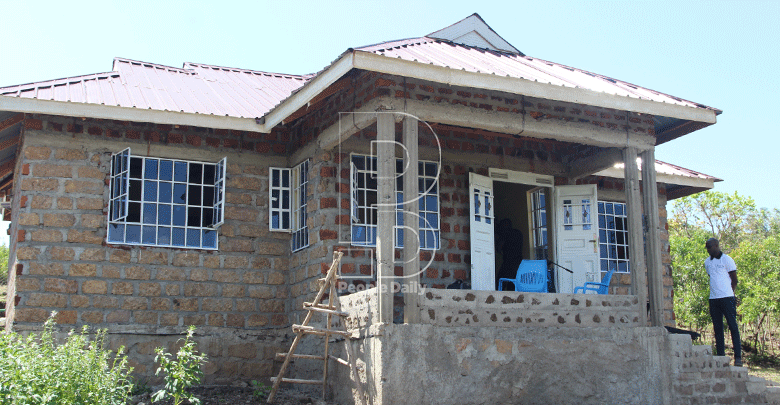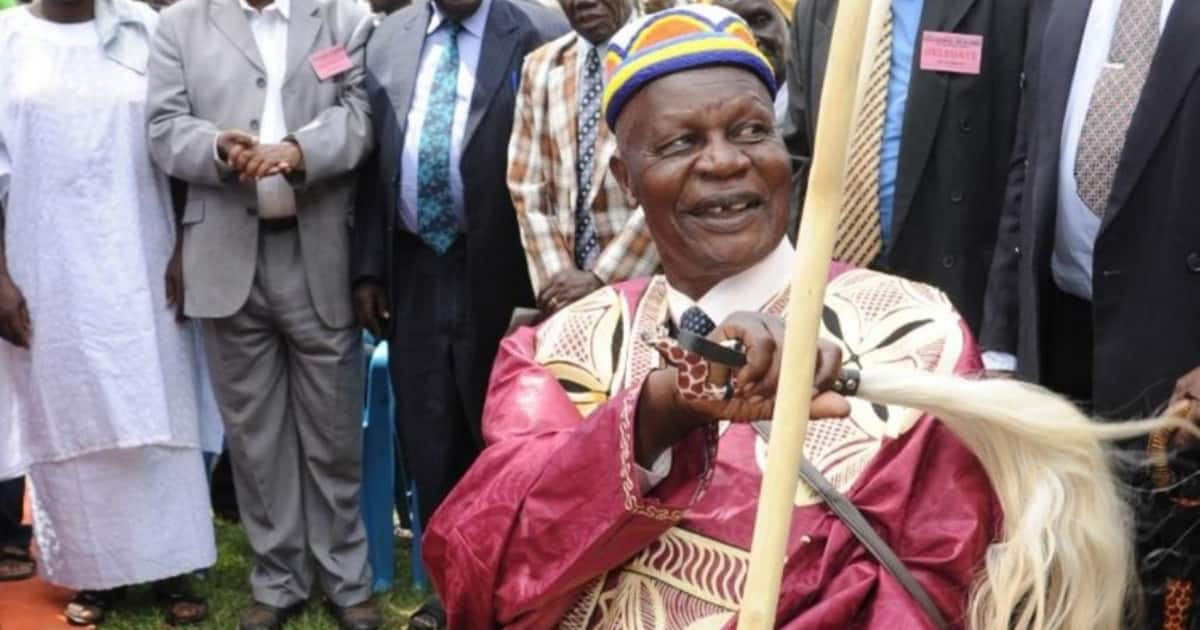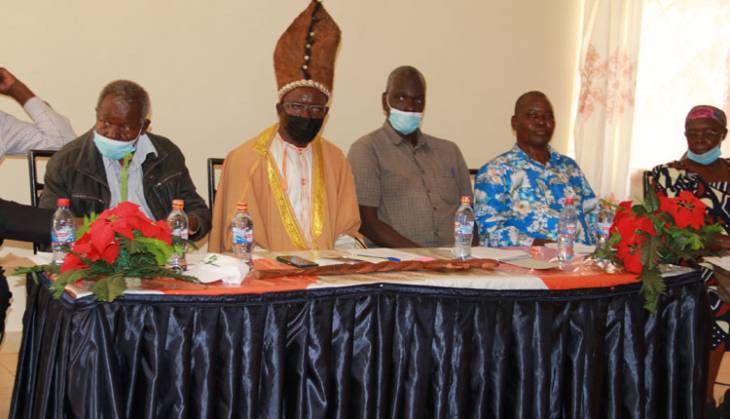I defied customs to build my home

For a widow in Luo community, it is taboo to construct your own house. Risper Oloo went against this tradition to protect herself and her children.
Harriet James @harriet86jim
The right to own land is a challenge many women particularly in African societies grapple with.
Besides being restricted from inheriting their parent’s land, they are not only evicted from, but also disinherited of their land after their husband’s death.
In some communities the only way to access such property is by being inherited by a relative.
For Risper Oloo, losing her husband 10 years ago brought a new wave of challenges.
It became unbearable as she was the sole provider to her children with her meagre teacher salary.
On top of that, the piece of land her husband left became a source of tussle between her and her in-laws.
“My in-laws wanted to grab the land until I processed the title deed and that’s when peace prevailed,” she narrates.
Risper foresaw another trouble looming should she die; her children were in danger of being disinherited.
She opted to buy a piece of land elsewhere and build a home for her children’s security.
“I bought it in batches. Being in a polygamous home, I thought it wise to save the little I would get and buy a piece of land where I have built myself a home. At least now my children now have a place to call home,” she says.
Strange act
The house was under construction last year during the pandemic, and some challenges she faced included multi-tasking activities on her own, some fundis exploiting her and over quoting prices and unforeseen costs that interfered with the budget.
She also faced stigma from the community because of the decision she had made fully aware of what traditions dictated.
“So many people approached me, telling me it was a taboo to build a house on my own without being inherited.
I was told I need a man to stand in according to culture. Some elderly men and women saw me preparing the piece of land and told me, I should not dare try. Others would ask me why I opted to build a home on my own.
There were asking me where in Luo land have I seen a woman building her home and overseeing the construction as it was strange for them. I didn’t mind what they said, but I went ahead anyway,” she recalls.
Her in-laws also saw her as a stranger and would not involve her during events or family discussion.
Vincent Obura, a member of the Luo council of elders, says widows were supposed to be inherited by a member of the family agreed upon by elders to protect her and take care of the late husband’s property.
Community sanctions
“If a widow remarries or opts to buy land in another home, she will automatically lose the right to claim her husband’s property or belongings. The children too can’t claim their father’s land if they are under 18.
Your legal right only stands when you are under a relative appointed to take care of you.
The man can place something like a walking stick or a coat in your home to just show there is a man in the compound,” he explains
He adds that today, if a widow wants to build a home elsewhere and she already has her husband’s property, she can do so.
In the past she wouldn’t be allowed even to remarry as she belonged to the community.
If she managed to go out, buy land and build a home, she has no right to claim any of her husband’s property.
Prof Eric Nyambetha, an anthropologist at Maseno University observes that women who opt to build their homes away from their matrimonial one face a lot of sanctions from the community.
“If a woman establishes her home outside her husband’s land, her children cannot marry and have sex in that home as that is what establishes a boma.
It’s either she is inherited to establish it or it stays like that as the Luo would call it chira should her child have sex before her,” he says.
He adds that if she opts to build the home, the woman should invite her in-laws and have a feast with the male relatives having the first portion of food.
If she is a Christian and opts not to follow tradition, they will not involve her in anything and will also avoid going to any event that involves her and her children.
They might even refuse to bury her, but if she has a Christian community, she is safe as they will support her.
Risper is now saving some cash to assist in her children’s education unlike before when she was married and had left it for chance.
She has also written a will to safeguard her property and her children should she pass away, something that is also against tradition as one is not supposed to plan on death.
Going through this has made her an encouragement to other women as some refer her actions as brave and daring.
“I enlighten the widows on their rights, teach them about the laws that govern them and link them to organisations and individuals who can offer support,” she says in conclusion.















